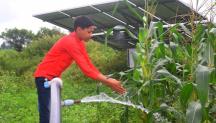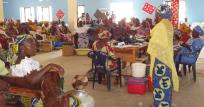
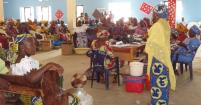
Empowering Women in Nigeria with Solar Energy
Newsletter
Around the world, women face the largest burden of not having access to modern energy. More often than not, it is women who have to walk long distances to collect fuel wood, and it is they who spend their days ingesting harmful air pollution from kerosene and wood fires as they cook, care and provide for their families.
Energy access is, therefore, a powerful lever for the economic and social empowerment of women and, when that energy comes from renewable sources, the socioeconomic and health benefits are amplified even more.
In northern Nigeria, thanks to the ingenuity, dedication, and hard work of a local entrepreneur, Habiba Ali, a new solar energy initiative is not only providing her community with a sustainable and affordable source of energy, but is also empowering other women through access to income-generation activates.
Like many other women in rural Nigeria, Habiba worked in a roadside food stall at night, helping her mother prepare and sell food to passersby. These stalls relied on kerosene lamps for lighting which, according to the World Bank, carries health risks equivalent to smoking two packs of cigarettes a day.
Habiba was given the opportunity to attend renewable energy workshops and technical trainings under the Promoting a Sustainable Solar PV Market in ECOWAS (ProSPER) Programme, an initiative of IRENA and the ECOWAS Centre for Renewable Energy and Energy Efficiency (ECREEE) that aims to help renewable energy entrepreneurs successfully bring their ideas to life, where she was inspired to pilot the introduction of solar lighting for a number of other food stall operators.
“The empowerment of energy consumers is one of the fundamental principles of the renewable energy transformation. Decentralized technology is now proving to offer economic opportunity and social benefits,” said Gurbuz Gonul, Senior Programme Officer in IRENA’s Regions work.
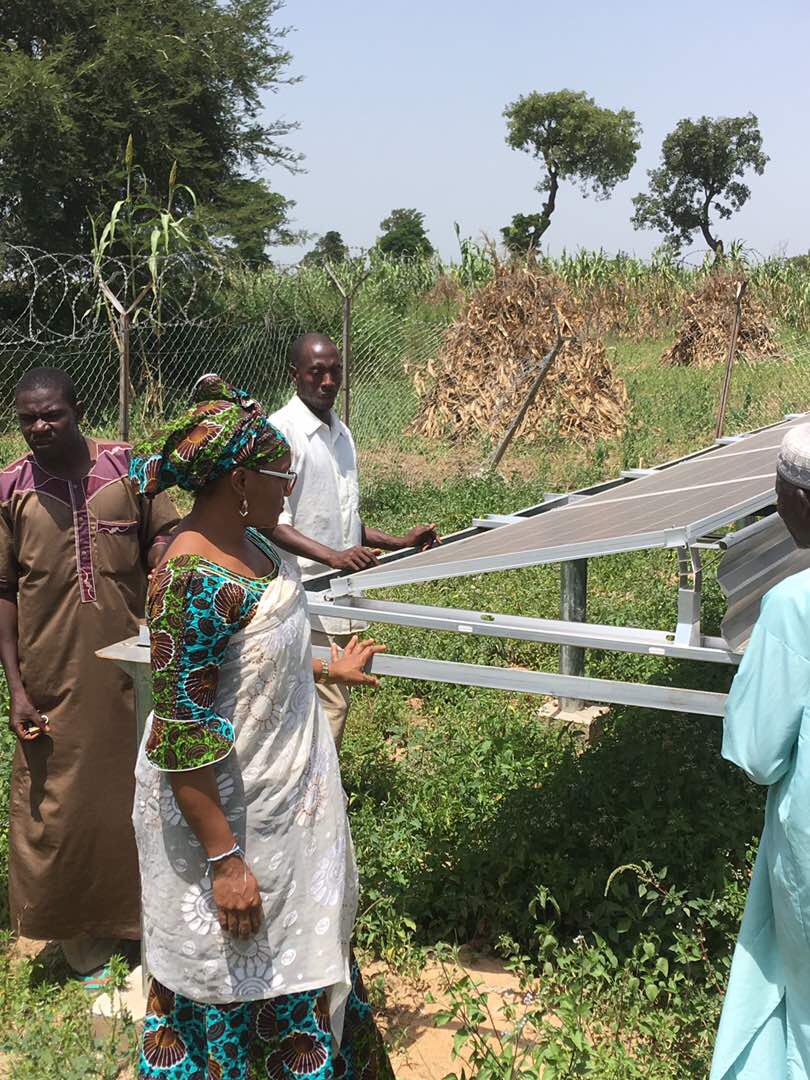
This experience proved pivotal, inspiring her to launch Sosai Renewable Energies and offer her family and her community affordable and reliable energy access, without the health risks. Before long, Habiba was taking on larger projects, even helping the Baawa and Kadabo regions implement 10-kilowatt (kw) solar micro-grids, providing electricity to over 800 individuals through a pay-as-you-go model.
Providing energy access to the low-income families in Habiba’s community was part of her learning process, and caused her to adjust her pricing model and business approach to the needs of low-income families in her community. As Habiba put it:
"There is huge energy poverty in our country and over 89 per cent of this poverty lies in rural areas. There is a need to bring innovation in renewable energy and sustainability to bridge the poverty gap. I believe innovation is only as good as the impact that it makes."
This sentiment echoes IRENA’s research, which shows that off-grid renewables offer a cost-effective, environmentally sustainable way to accelerate the pace of electrification. Expanding the range of appliances powered by off-grid renewables can also encourage income generating activities in rural areas.
Through Sosai, Habiba also created Women of the North for Excellence (the MASI), an initiative where women can become entrepreneurs through leadership in commission-based projects.
One project involves renting out solar dryers for drying peppers and other crops, thereby increasing their shelf life. Nigeria accounts for about 50 per cent of Africa’s pepper production and in rural northern Nigeria as much as 40 per cent of a family’s income can come from harvesting peppers.
“Women play a major role in agriculture, and the introduction of solar powered technology will go a long way to improving their economic and social status,” said Habiba.
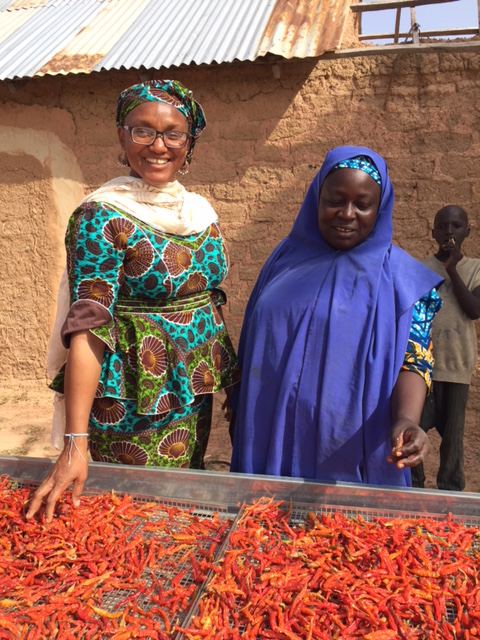
The MASI women rent a solar dryer from Sosai and use the crop drying fees to pay for its rent, while earning 10 per cent commission from their sales. These small renewables energy ventures have given women ownership, independence and the ability to provide sustainable energy to their community. According to an evaluation of the project, the income of the MASI women has risen by as much as 30 per cent.
“Because of the solar dryer I am now more relevant in my community. People seek me out to dry their produce and I have benefited financially,” said Karime Yahaya, a woman working with the MASI.
“I’ve been making a profit from this business, and I also introduced this project to other women, so that they can benefit from it, too,” said Sunara Padida, one of the MASI’s entrepreneurs.
Thanks to Habiba, more women northern Nigeria have access to an affordable and sustainable source of energy that carries with it a range of socio-economic benefits, and also to income-generating activities. She is continuing to scale-up her renewable projects and other endeavors, such as a project to improve cook stoves in rural communities and installing a computer room in a school in Kaduna State.



